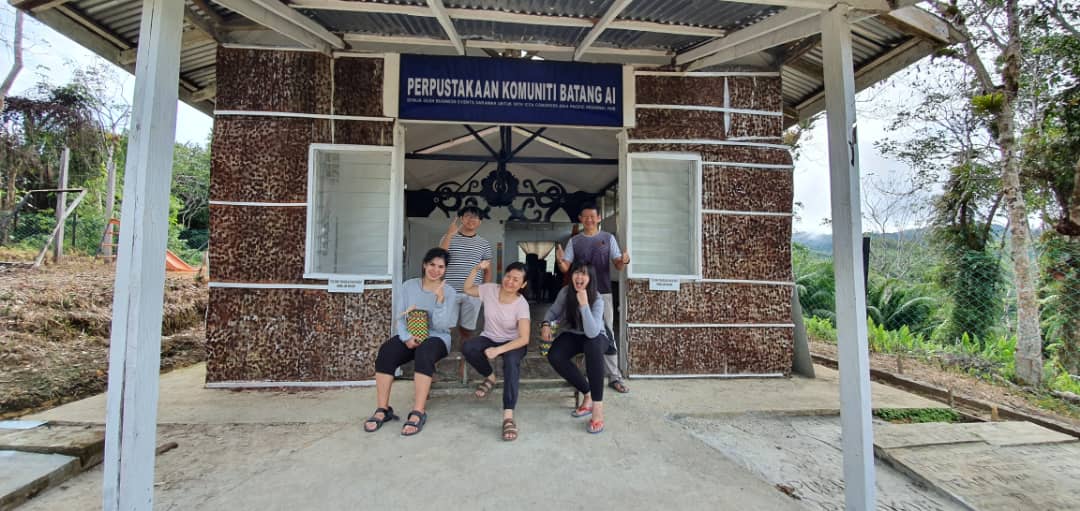BESarawak: How to Tap New Social Ground Through Business Events!

Who would have thought that Sarawak, situated on the island of Borneo, would become one of the spearheads of legacy impacts in the global business events industry? Read Sarawak’s inspiring stories here as they navigate the social layers of the conference sector.
Malaysia’s largest state, hailed as one of the best biodiversity hotspots in the world, is also making a name for itself with destination innovation capabilities and elevating the multiple benefits of its business events. Early on, they realised that business events are powerful platforms for real change, cross-sector collaborations, greater community engagement, and better policy development with long-term and positive benefits. The Sarawak Government recognises that business events are drivers to empower communities, conserve heritage, culture and biodiversity, and promote the overall development of Sarawak’s industries, setting out 5 legacy impact pillars: Sectoral; Community & Social; Trade & Investment; Environment; and Political.
On the occasion of ICCA’s IMEX WEEK, it was discussed why advocacy and politics are so important in cementing new and strengthened congress destinations, and how this industry and its professionals can help political authorities better define proactive courses of action and legislation. We then set an exclusive interview at the German trade show with the Minister of Tourism, Creative Industries and Performing Arts, Datuk Haji Abdul Karim Rahman Hamzah, and Amelia Roziman, CEO of Business Events Sarawak (BESarawak), to go into more detail about this Malaysian event legacy experience. During the pandemic, Sarawak did not back down and came up with a post-COVID-19 development strategy for 2030 − a ten-year plan to recover all sectors and economies to pre-pandemic levels and even further. “When we talked about this strategy, the focus of our ministry comprises two aspects: ecotourism and business events. Naturally, the post-COVID-19 development strategy has some KPIs that measure business events. For example, we are looking to get 50 homegrown business events in ten years. We don’t just want to bid for events to take place there, we want smart congresses to connect with Sarawak in our target areas,” said Minister Hamzah.
“We don’t want to become an association hub just for the sake of it. We want to be selective in the way we follow our journey with associations. When we talk about having a regional association in Sarawak, we want quality and to look at the key economic sectors of the Sarawak government”
To measure this ten-year policy, Malaysian officials have chosen two important variables: economic impact and (of course) legacy impact. “Previously, people only looked at direct expenditure, but now we have also entered a new phase of economic impact with new KPIs on job creation, sector investment and increasing the ROI of business events. As for measuring legacy impact, we started collecting the date this year until 2025, so we can make a comparison of values − because only after the event has taken place and this process has matured we can get the results and validate that legacy,” says Roziman.

In 2016, Kuching hosted the 55th ICCA Congress and one of the pillars of the programme was education. Out of that congress came the “Gift of Love: Batang Ai Community Library” − a CSR project led by the 59th ICCA APRH Committee, which originated as a book sharing programme and then expanded into a life-changing initiative with support from the public and private sectors. The aim of the library was simple: to provide a functional space with educational resources and to help retaining a lot more disfranchised children. “What ICCA did was ask the delegates to bring two books on their arrival to the library. When we won the ICCA congress bid for the Asia-Pacific hub in 2020, we wanted to make it bigger and better. We went to the social media and appealed in 9 days to collect 500 books. We ended up receiving over 7,500 books from delegates, associations, corporate organisations and general public. From there we had to store the books in the state library and finally we applied to the state company, Sarawak Energy Berhad, for funding to build a longhouse library in Batang Ai,” says the CEO.
Another example of urban development sparked by a major event took place in Miri. Five years ago, BESarawak hosted the 8th International Forum on Industrial Bioprocessing bringing delegates from the four corners of the world. With a limited number of hotels, restaurants and suppliers, this conference turned out to be a success. Miri University applied to the government for a laboratory to do further research from that conference, and eventually got it.
.jpeg)
“For us, this is the true definition of legacy in business events,” said the Minister. In the BESLegacy Initiative model, BESarawak in line with ICCA Asia Pacific hub has been trying to understand if in fact these impacts are clear to the whole local and regional industry. In recent times, they have trained all staff, including receptionists and managers, on legacy impacts, and industry partners as well so that they can tell the story and guide their clients and staff. “We don’t want to become an association hub just for the sake of it. We want to be selective in the way we follow our journey with associations. When we talk about having a regional association in Sarawak, we want quality and to look at the key economic sectors of the Sarawak government,” concludes Roziman.
Other Articles
About Us
Supported by the Union of International Associations (UIA), the International Association of Professional Congress Organisers (IAPCO) and the Interel Group, the global public affairs and association management consultancy, Headquarters Magazines serve the needs of international associations organising worldwide congresses.















